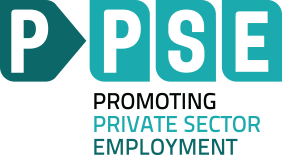Coronavirus has changed the way we travel and tourism in general. At the peak of the pandemic, most of the destinations were obliged to implement travel restrictions and the industry had to discover a new normal and adapt to new guidelines in the sector to recover and prevent future crises.
Upon completing the second phase and two years into Covid19, the SDC project PPSE organized an event to discuss the economic effects of the pandemic in the Tourism Sector and the lessons learned, and the way forward. “Regardless of the first psychologic shock, what we saw is that the tourism sector is too important for economic development. It is a key sector in the world and Kosovo too, and our society understood this. Tourism actors were the first to engage in improving the situation, and this is where we saw the importance of each of the industry segments” said Mrs. Argjentina Grazhdani, the PPSE project manager. Mr. Fisnik Bajrami, the Monitoring and Results Measurement Specialist at PPSE presented the Supply Side Survey results to the guests. One of the main findings of the survey shows that there was an increase in the number of employees in the tourism sector up to the start of the pandemic. “A fact that makes us happy is that the rate of utilization of accommodations has been increasing. This shows that there is room for new investments in accommodation. It is interesting also that accommodations have generated up to 40% of capacity and there was no big decrease in generation in the restaurant section, in 2019 there was a 50% increase while it dropped only to 35% in 2020.”. PPSE compared the data with countries in the region, which had better recovery packages. The survey shows that the region has also suffered similar damage as the trend in Kosovo. Along with this discussion, Mr. Ilir Berisha from the Kosovo Agency of Statics discussed the importance of data and improving the available statistics. “All the data we collect is important for policymaking, especially the data we collect through border police, - a project which was supported by the PPSE “, said Mr. Berisha.
Issa Torres, Sustainable Tourism Development Expert at Swisscontact focused on sustainability in consumer demand and presented good practices and examples from worldwide destinations that are addressing sustainability in diverse spheres, including tackling climate change and strengthening links between small producers and visitors. Ms. Torres talked about the changes that the pandemic has brought up, which are here to stay, such as digitalization; the importance of hygiene and safety measures, and building trust and confidence. “This is a timely moment for re-thinking tourism development models and creating more resilient destinations,” said Ms. Torres. She discussed the recovery and resilience and mentioned key issues to move forward: 1) long-term strategic vision, which also benefits the local communities and the planet: 2) the importance of data intelligence to make informed decisions and 3) public-private cooperation and partnerships for action implementation.
The first panel also had speakers from the Ministry of Industry, Entrepreneurship and Trade who spoke on the perspectives of the public sector, measure, and the future. Mrs. Lumturije Geci, Vice Director at the tourism department at the Ministry mentioned two important measures from the economic recovery package that are the revitalization of villages through agriculture and agrotourism and measures for the recovery of businesses. The Ministry will continue to work in finalizing the strategy for tourism management, and they will work on finalizing the law and bylaws.
The second part of the event was focused on the adaptation of the offer and promotion; different perspectives as experienced by project partners. One of the most important interventions supported through the last two years was the WTTC Safe Travels certificate. This enabled tourism operators to bring back trust and ensure visitors of security, and it added value to destinations. “Lack of information, communication, and specific database with the guests made us a little unpredictable. Lack of clear guidelines from institutions made us use information from various international institutions. The safe travels certificate helped us regain trust but, to become a safe destination, we had to look at the value chain. It is not enough to have only one hotel or one restaurant certified. The idea was to offer a full operator chain certified with the Safe Travels and this not only brought us more positive comments all over social media for example but more visitors too”, says Fidan Hallaqi, safe travels consultant. The topic was continued by Baki Hoti, chairman of the board of the Kosovo Tourism Union who said that until now, about 41 tourism entities are certified with the Safe Travels stamp and the demand for certification has increased over the last few weeks. The event was closed with a discussion on the diaspora promotion and its importance on the country’s economic development by Sevdail Tahiri, director of Albinfo platform (Switzerland).
Over the past four years, the tourism sector of the PPSE project implemented activities aimed at directly contributing to the increased number of tourists, who spend more and stay longer in the destination, thus leading to more income and employment. Some of these interventions include the development of new products throughout Kosovo, improvement of touristic attractions, intensified international tourism promotion, short-term training for specialized tourism-related occupations, and sector coordination.





